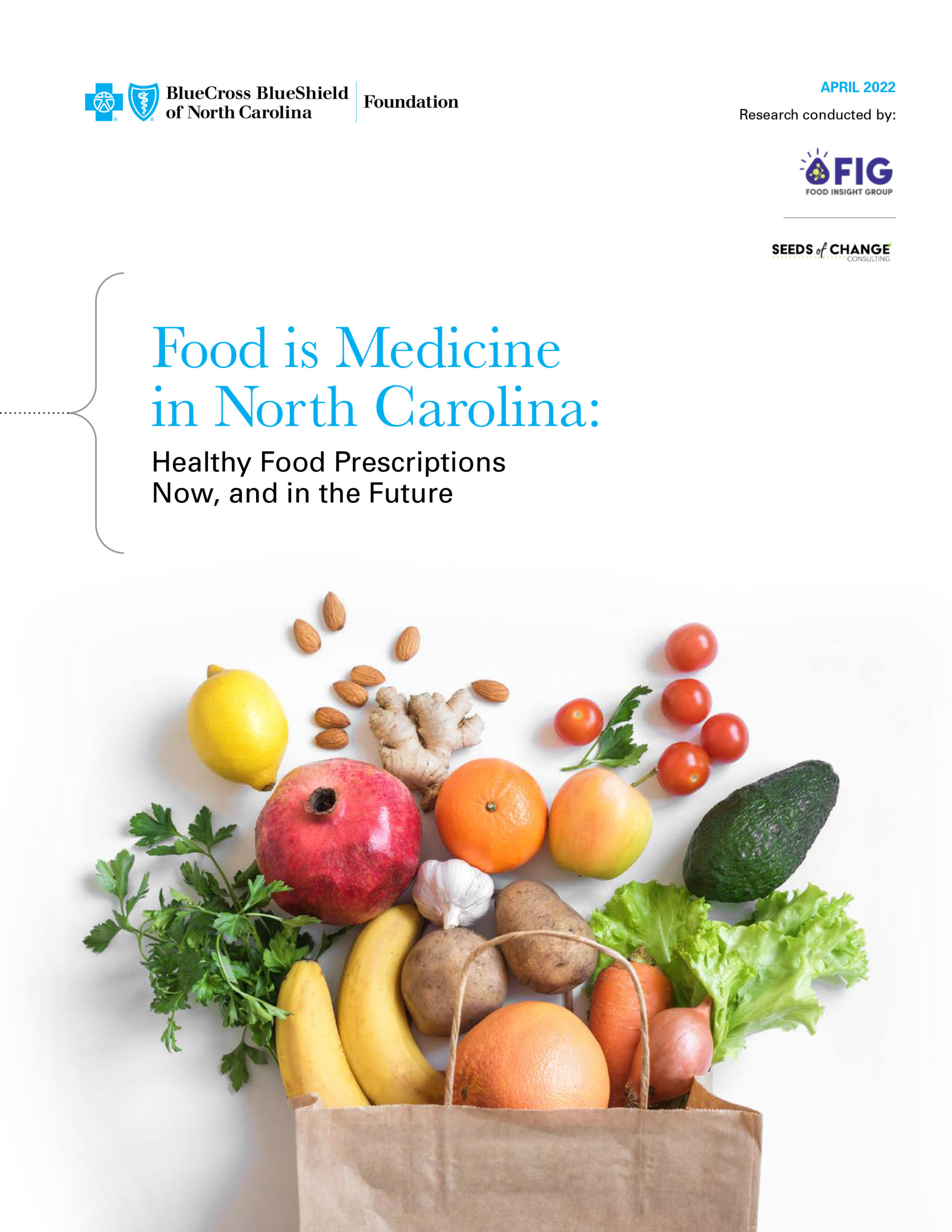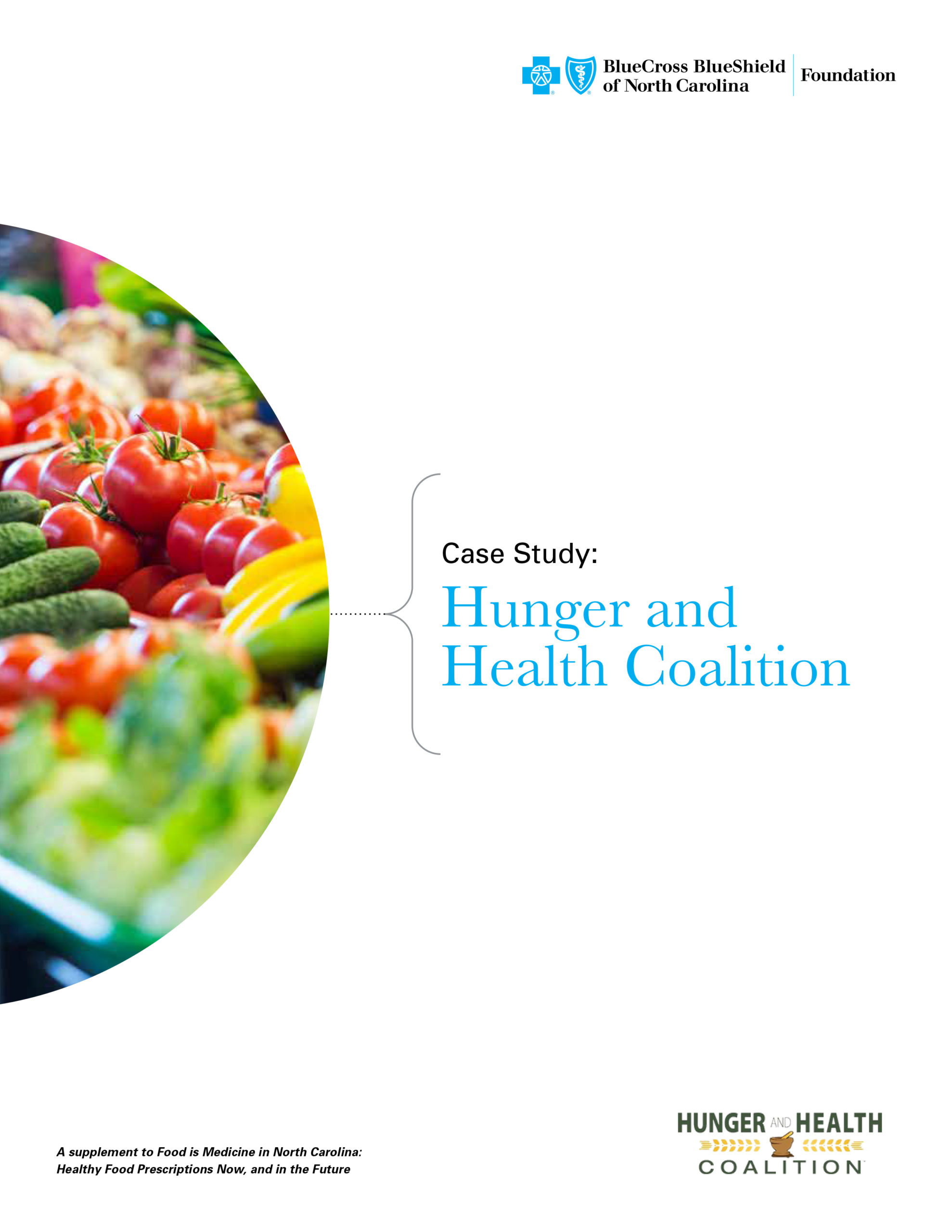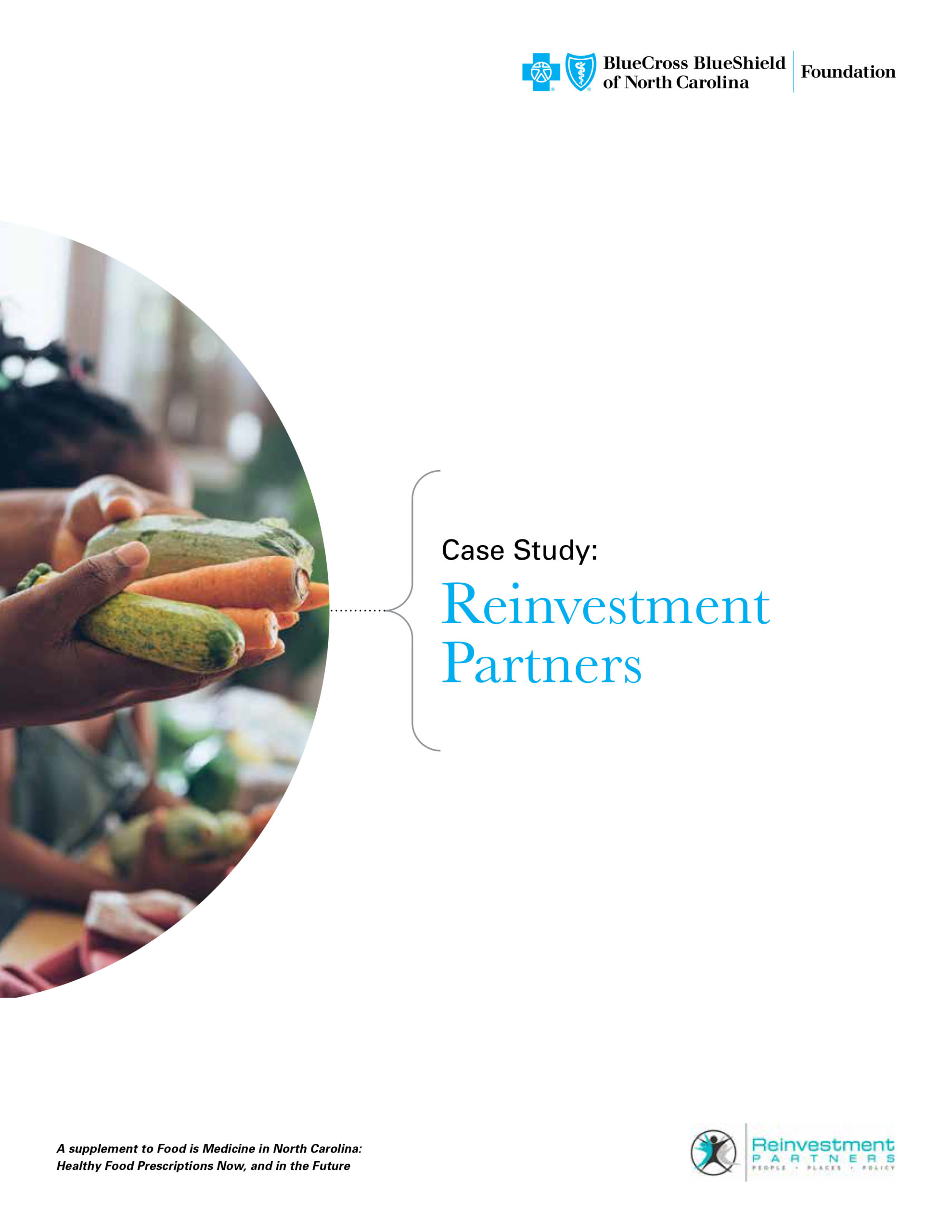Food is Medicine in North Carolina: Healthy Food Prescriptions, Now and In the Future
Background
The collective approach to health and health care in North Carolina is evolving. There is a rise in value-based care, with increased emphasis on patient outcomes and with that, an increased emphasis on addressing the factors that impact those outcomes - such as a patient’s income, housing-status, exposure to violence, and access to the right food.
North Carolina is one of the top agricultural states in our country, yet nourishing food is not universally accessible. In fact, one in seven North Carolina households were food insecure prior to the COVID-19 pandemic. Unfortunately, that number is rose as the pandemic stretched on.
Families experiencing food insecurity face tough choices every day having to choose between food and other critical expenses like housing, transportation, and medical care. The effects of food insecurity are far reaching with its links to decreased healthy food consumption, increased risk for diet-sensitive chronic disease, and increased health care costs, among others.
In order to combat this and ensure better health outcomes for everyone living in North Carolina, innovative approaches are essential. One of those approaches is Healthy Food Prescriptions, which make healthy food more accessible for people and the communities that need it through partnerships between community-based organizations and health care providers. Patients are assessed by a health professional for diet-related disease and/or food insecurity, and then the patient is prescribed a food-based intervention (beyond nutrition education) delivered by a community-based organization.
Research indicates Food is Medicine interventions, like Healthy Food Prescriptions, are effective and hold promise for improving health and quality of life. Other impacts are wide-ranging:
- Activation of health care professionals in solutions that support health and address food insecurity rather than focusing on the downstream impacts
- Leveraging the local expertise and asset-bases of community-based organizations to support health
- Providing opportunities to support local food and farms
There are successful Healthy Food Prescription partnerships between community-based organizations and health care providers taking place right now in communities across North Carolina. These programs are a step in the right direction of making sure healthy food becomes easily accessible for everyone, and substantial efforts have been made behind the scenes to further support and uplift the programs. With Food is Medicine in North Carolina: Healthy Food Prescriptions Now, and in the Future, we bring some of those efforts to the forefront.
Approach
Blue Cross NC Foundation supported Food Insight Group and Seeds of Change to conduct research of Healthy Food Prescription programs in North Carolina in order to identify active programs, outline the diversity of operational approaches, and report on elements needed to grow the Healthy Food Prescription movement.
Over several months, the researchers identified more than a dozen Healthy Food Prescription programs across the state. Through surveys and focus groups of community-based organizations health care practitioners, and other key informants working in and around these programs, they identified and profiled diverse, innovative approaches taking place across North Carolina and outlined the barriers and opportunities to their further development.
What We Learned
There isn’t just one way to solve food insecurity, and there also is no single Healthy Food Prescription model - all take different approaches to provide the vital service they do in their communities. This is perhaps the biggest takeaway from this research. Additionally, these types of collaborations can break down silos between institutions, communities, and local economies, and open opportunities to work with more community partners, including local agricultural producers. And among other things, Healthy Food Prescription programs can also be a viable supplement to important programs such as SNAP and WIC, which can be inaccessible or restricting to some people.
While optimism for the Food is Medicine movement is evident, funding is a significant and ongoing challenge as most rely on donations and philanthropy for operational support. Establishing a more sustainable funding model is essential in order for Healthy Food Prescription programs to continue, and to grow, into the foreseeable future.
Why It Matters
Healthy Food Prescription programs have demonstrated effective approaches to making healthy food more accessible for people and the communities that need it. Growing this movement in North Carolina can be an important tool to positively impact individual lives, support local agriculture, grow local economies, and improve health care outcomes.
We hope that this report can help health care providers, and others who care about health and healthy food access, see the value in Healthy Food Prescriptions, gain a deeper understanding of how these programs function, and determine how to best engage with, support, and/or establish a program in their community.

REPORT
Food is Medicine in North Carolina: Healthy Food Prescriptions Now, and in the Future
There are successful Healthy Food Prescription partnerships between community-based organizations and health care providers taking place right now in communities across North Carolina. These programs are a step in the right direction of making sure healthy food becomes easily accessible for everyone. With Food is Medicine in North Carolina: Healthy Food Prescriptions Now, and in the Future, we bring some of those efforts to the forefront.

CASE STUDY
Hunger and Health Coalition
Hunger and Health Coalition’s (HHC) program begins with a hospital-based or clinic-based health care provider identifying patients that are managing one or more diet-related chronic diseases and are experiencing food insecurity. Providers write a prescription for a medically tailored meal box, and clients either fulfill that prescription onsite at one of HHC’s locations, or receive a medically tailored meal box delivered to their door. The program provides customizable boxes, nutritional counseling, and regular interaction with HHC staff. Clients can remain in the program as long as they maintain income and other eligibility.

CASE STUDY
Reinvestment Partners
Reinvestment Partners Eat Well is a produce prescription program operating in locations across the state that provides $40 per month to each enrolled participant to use to purchase fruits and vegetables. The electronic benefit is linked to a retail grocery customer loyalty card to facilitate access, ensure client choice, and maintain the dignity of participants.